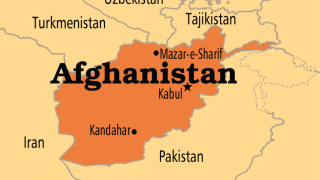Syrian Revolt and Pipeline Geopolitics
15.01.2013
No matter what was said about the causes of the conflict in Syria, there is one fundamental thing connected with Petropolitics and interests of global capital. Now let's go away aside the tactics of guerrilla warfare and analysis formed situation with methods of propaganda through Social Networks and hidden religious motives.
The state of affair of the regional powers, which are the most important players in energy politics presents Iraq and Iran are on the one hand and Qatar and Saudi Arabia are on another. Syria mediates possible infrastructural regional projects, and trunk pipelines could link the region of The Great Middle East to Western Europe.
The environmental determinism pointes out that this state is in a more advantageous position than Turkey through which the Baku–Tbilisi–Ceyhan pipeline lies. The South Caucasus is further north and the Russian Federation have strategic interests there.
So, Syria is the only fall-back position as an alternative of a transit country. Besides having own oil fields, Syria's leadership is quite aware of the importance of country's geographical location.
In 2009 Bashar al-Assad has been promoting a "Four Seas Strategy" to turn the country into a trade hub among Persian Gulf, the Black Sea, the Caspian Sea and Mediterranean Sea. In 2010, the government signed a memorandum of understanding with Iraq for the construction of two oil pipelines and one gas pipeline to carry gas and oil from Iraq’s Akkas and Kirkuk fields on the Mediterranean Sea. In July 2011 Iranian officials announced a $10 billion gas pipeline deal between Syria, Iraq and Iran that would transport gas from Iran’s South Pars gas field, the world’s biggest, through Iraq to Syria. Also was planned an extension of the AGP from Aleppo in Syria, to the southern Turkish city of Kilis that could later link to the proposed Nabucco pipeline linking Turkey to Europe.
The presence of such players in one team contradicted the Washington's plans to manipulate energy flows to Europe. These plans might be ruined by serious force majeure circumstances. At the beginning of 2011 the first demonstrations in Syria were already held and the idea of creating chaos was supported by The West and the regional powers, because it could prevent the realization of Syria's Four Seas Strategy. Turkey is one of these countries which run counter to its own strategy "not to have problems with neighbors". The second state is diminutive Qatar which serves interests of the USA and the UK. Turkey depends on gas from
Russia and Iran. It was advantageous for Turkey from the point of view of Eurasian Strategy to enter into alliance with Syria, (there is dependence on the West through NATO), then Qatar found out the advantage of destruction of a possible energy alliance. Earlier Qatar had proposed a gas pipeline to Syria to transport gas across Europe, but this idea was refused. A sense of revenge had a great impact on The Arab Spring. Estimating the perspective gas income to Europe and having found the support from paranoid politicians who were anxious about Gazprom's monopoly, Qatar started to support for an extended front of opposition - the National Transitional Council, a politically amorphous structure, some Non-Governmental Organizations and Jihad terrorists, many of whom do not even understand their enemies. Taking into account the means of tools of soft power, Qatar and The Department of State of U.S. started sponsoring different religious centers and organizations in particular those which are connected with the Sufi Tradition and mystical Islam in general. For example, Sheikh Abdelkader, a follower of Sheikh Mawlay al Arabi ad Darqawi’s theory, established links with Qatar and the UAE, getting a financial support from these countries. The center of the Naqshbandi order in Cyprus also was involved in a pro-American shady undertaking. Sheikh Nazim Al-Haqqani established links with the State Department and propagandized threat from Russia: the fake script of the invasion of Turkey and the liberation of Istanbul with the help of Anglo-American army.
Moreover Qatar has worth millions contracts for the purchase of arms from the USA. It is doubtful whether the diminutive state is going to defend from the neighboring satellite states - Saudi Arabia, Bahrain or the UAE. Probably they act on suggestion of The Pentagon for the hypothetical protection from Iran, which is not going to conflict with the countries on the other side of the Persian Gulf. Iran as an important ally of Syria is the next target of the West. This is not a random collection of facts.
This is the actual position of affairs of the Mid-East geopolitics. Be watchful!










